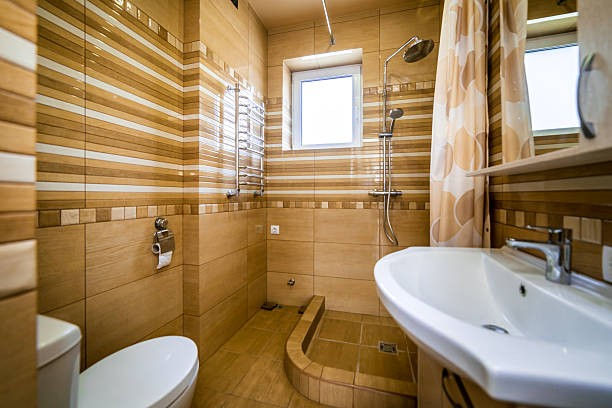How to Choose the Best Tiles for Moisture-Prone Bathroom Areas
- lawrencebushner
- Jul 21, 2025
- 3 min read
Updated: Aug 27, 2025
Bathrooms are built for water—but that doesn’t mean every tile is. If you’ve ever dealt with peeling grout, slippery floors, or moldy corners, you know how quickly moisture can ruin a space. That’s why choosing the right tile isn’t just about color or style—it’s about what can handle the wettest parts of your bathroom.
Before your next upgrade, here’s how to make the right call—and where bathroom tile service fits in when it’s time to get the job done right.

Water is sneaky. It seeps into corners, creeps under floors, and gets into grout lines. If your tiles or underlayment can’t handle it, you’re setting yourself up for problems like mold, stains, and even tile damage. This is where bathroom waterproofing services in Dallas-Fort Worth can be a lifesaver. But step one is choosing the right tile in the first place.
Ceramic vs. Porcelain: What’s Better?
Ceramic and porcelain look similar, but they act very differently when it comes to water.
● Porcelain tile is denser and absorbs less moisture. It's great for shower walls, bathroom floors, and even areas around tubs.
● Ceramic tile is slightly more porous. It’s easier to cut and install, so it’s fine for low-splash areas like backsplashes—but not always best for wet floors.
When in doubt, go porcelain in places that see the most water.
Go Textured, Not Slippery
Smooth, glossy tile may look great—but it’s not a great match for wet feet. In high-moisture areas like walk-in showers and floors, look for tiles with a matte finish or slip-resistant texture. Natural stone, textured porcelain, and certain pebble tiles add grip and style without turning your floor into a slip zone.
If you’re unsure, a quick call to your local bathroom tile service in Dallas-Fort Worth can help steer you toward safer picks.
Don’t Ignore Grout and Sealer
Even the best tile won’t work without strong grout and sealing. If your grout is cracking, crumbling, or soaking up water, it's time to fix it before the damage spreads.
Waterproof grout, regular sealing, and correct spacing all help keep moisture where it belongs—on the tile, not underneath it. In high-use bathrooms, this is where bathroom waterproofing services become essential.
Size and Shape Matter Too
Want fewer grout lines? Go with larger tiles. Want better water flow on shower floors? Smaller mosaic tiles with more grout may actually work better for drainage.
In short: one size doesn’t fit all. Consider how each tile shape performs in the space you're working with.
What About Natural Stone?
Stone tiles like slate, travertine, or marble can look amazing—but they’re more high-maintenance. They need to be sealed more often, and some absorb water faster than others. If you love the look, just be sure you’re ready for a little extra upkeep.
For many homeowners, low-porosity porcelain tiles are the better long-term choice for areas with regular splash and steam.
Keep Water Out—Keep Style In
The right tiles can help your bathroom stay clean, look great, and fight off moisture damage—but it takes more than a pretty surface. Choosing water-resistant materials, proper grout, and expert sealing makes all the difference. If you’re tackling a project and want lasting results, working with professionals matters.
Masterpiece Tile & Grout offers expert bathroom tile service in Dallas-Fort Worth, along with trusted bathroom waterproofing services that help protect your home from hidden water damage. Your bathroom deserves both beauty and durability—start with both.

-8.png)



Comments